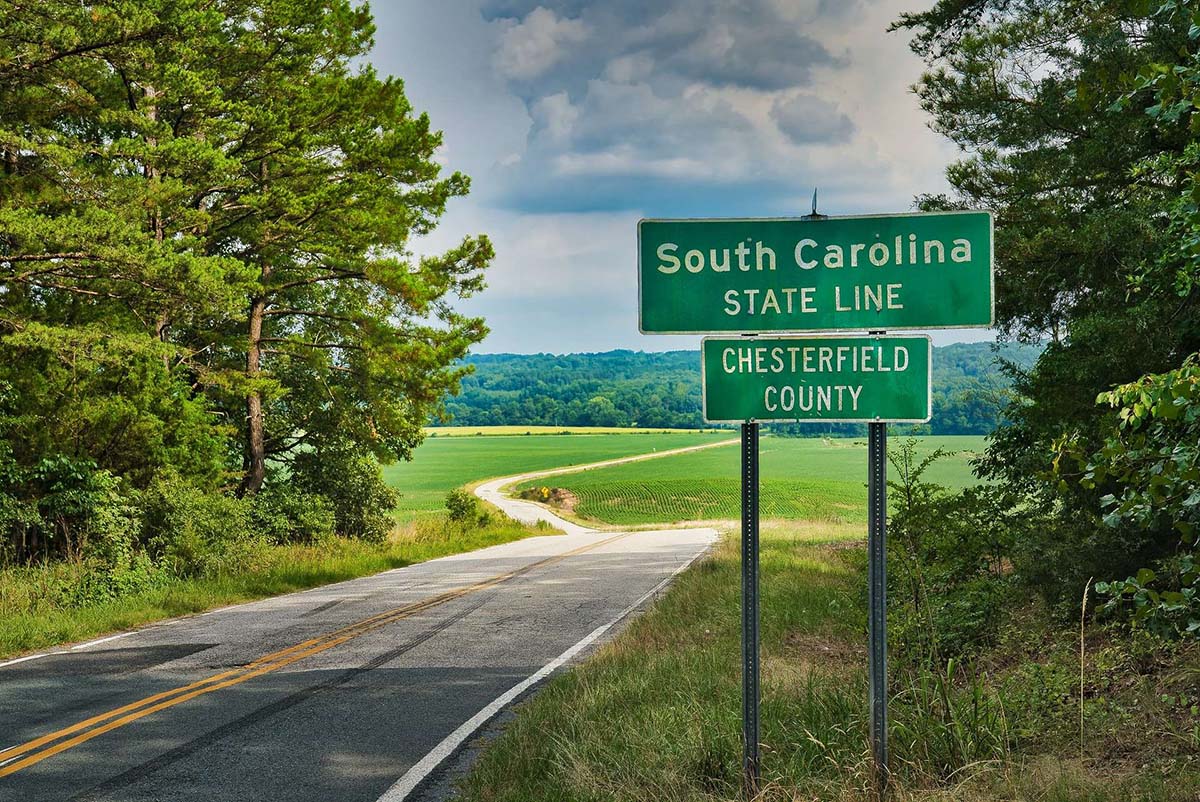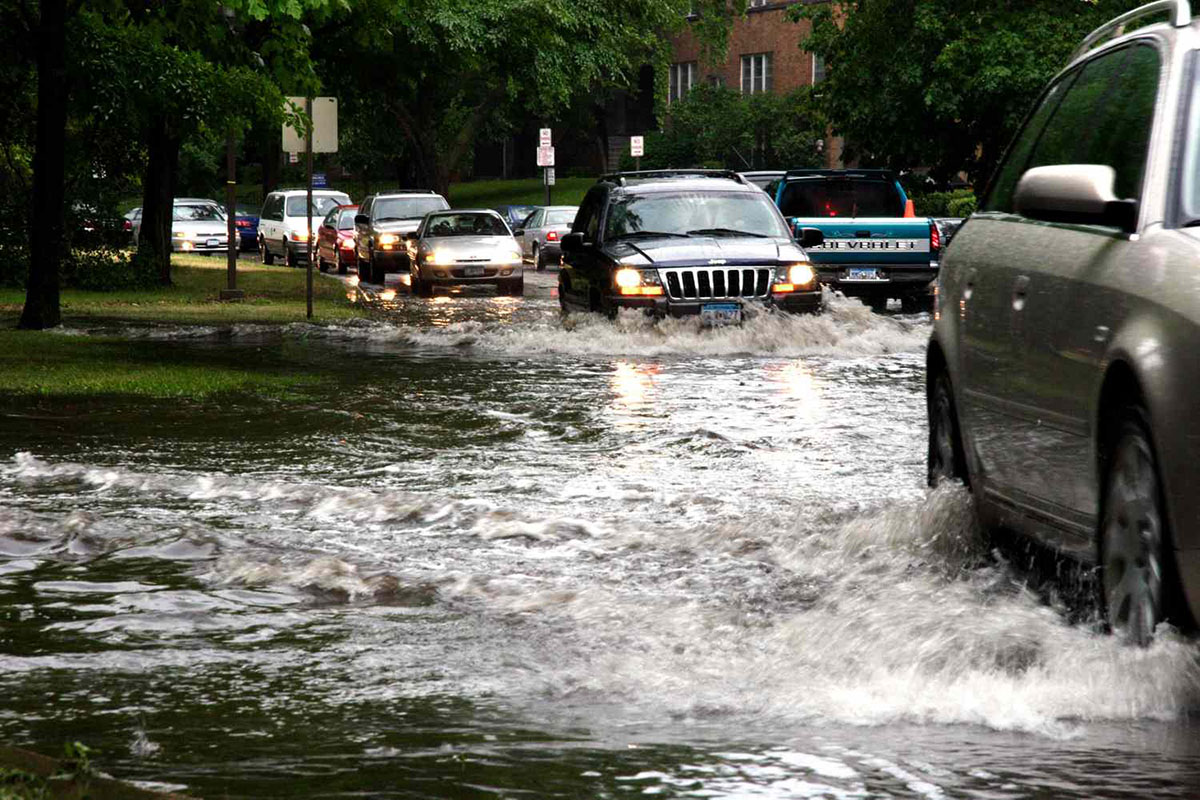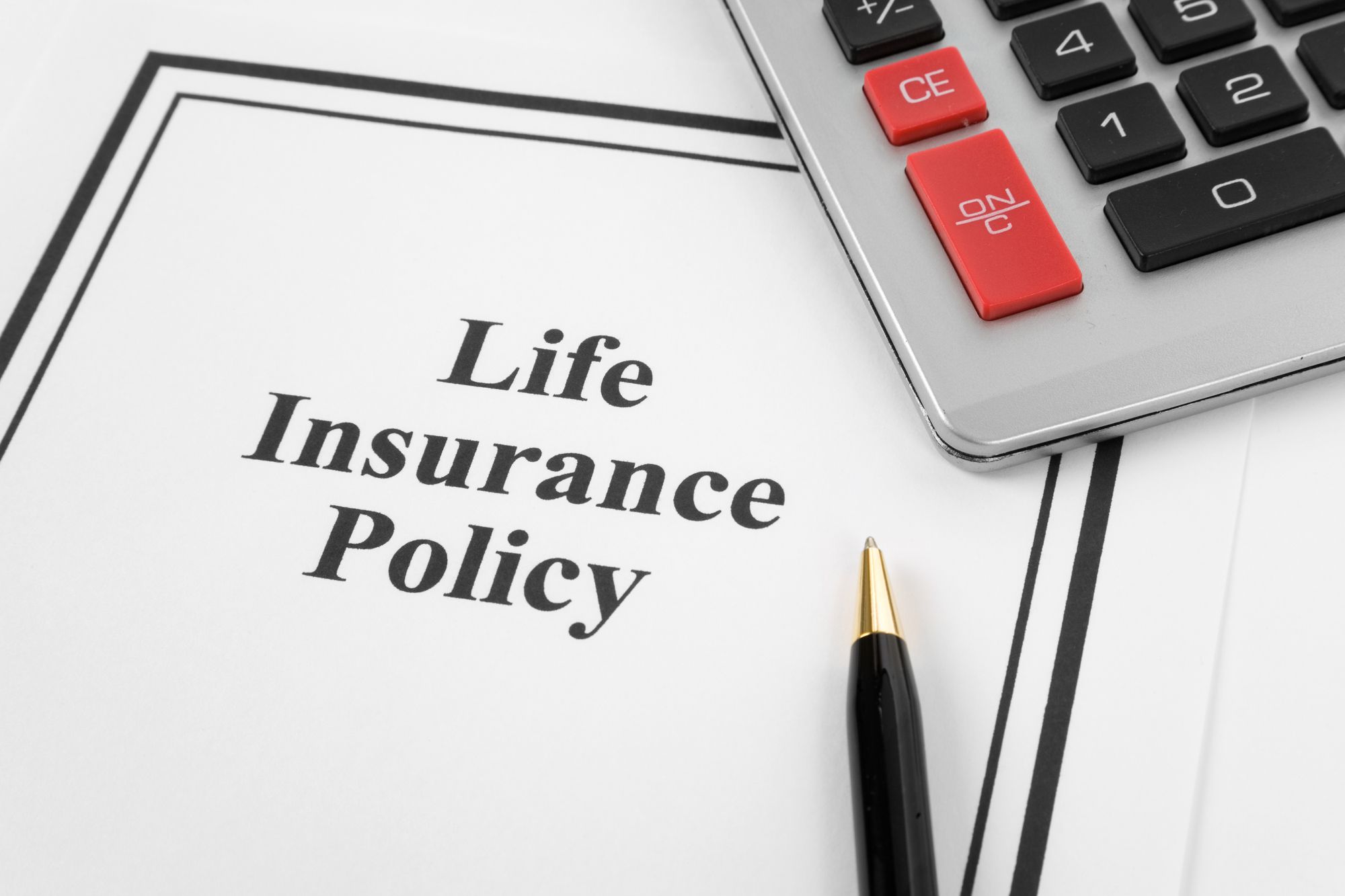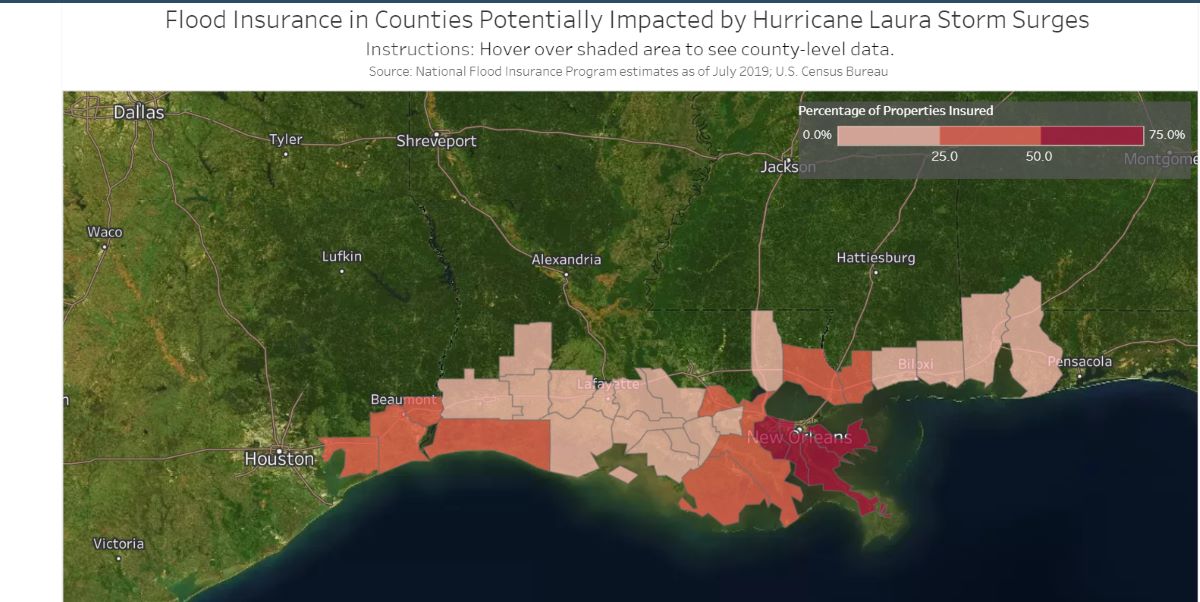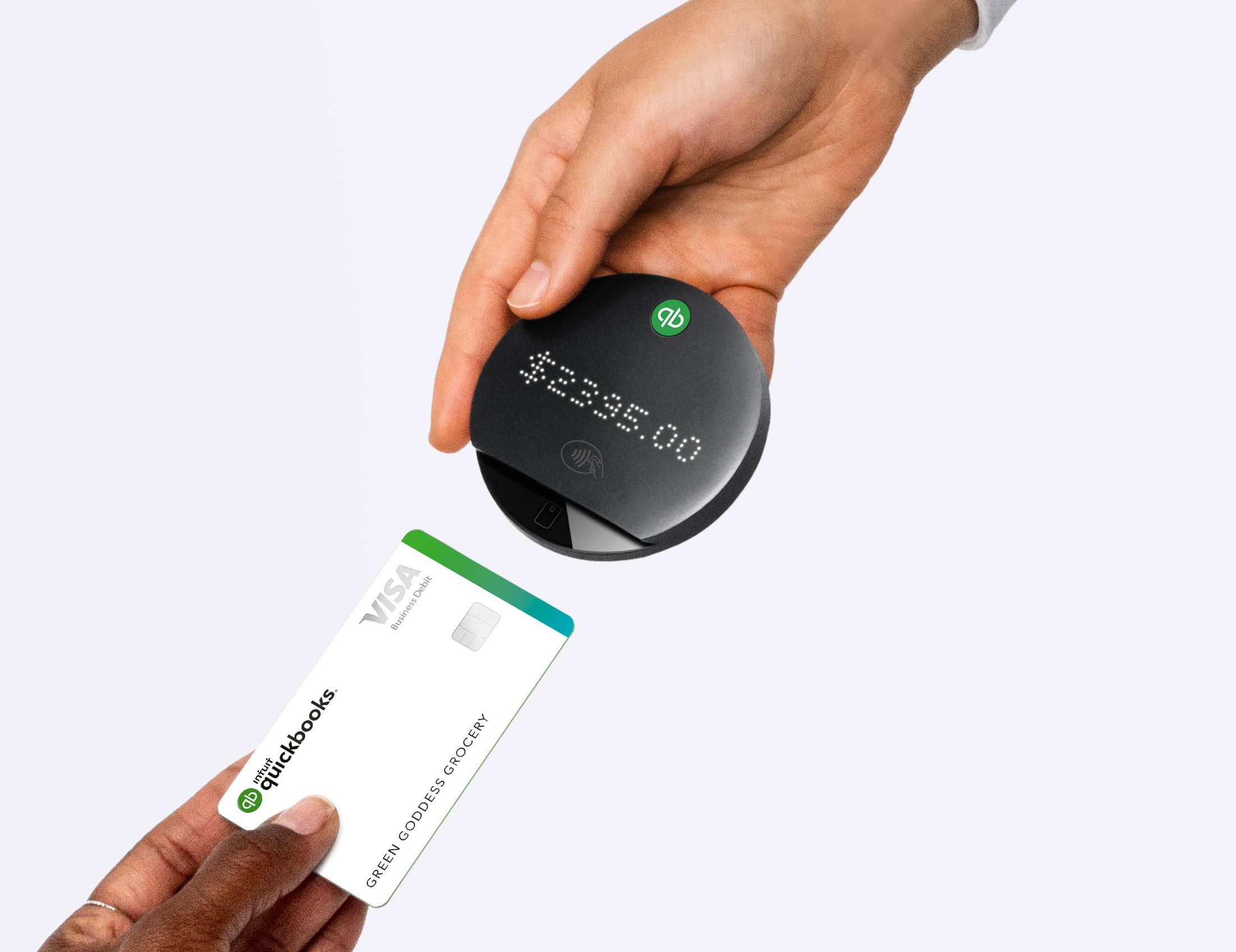

Finance
How Much Is Flood Insurance In South Carolina?
Published: November 9, 2023
Get the latest information on flood insurance rates in South Carolina. Protect your finances with affordable coverage.
(Many of the links in this article redirect to a specific reviewed product. Your purchase of these products through affiliate links helps to generate commission for LiveWell, at no extra cost. Learn more)
Table of Contents
Introduction
Welcome to South Carolina, the beautiful coastal state known for its picturesque beaches, lush landscapes, and vibrant communities. While South Carolina offers many advantages, it is also susceptible to natural disasters, including flooding.
With its low-lying areas and proximity to rivers and the Atlantic Ocean, South Carolina experiences frequent flooding events that can cause significant damage to homes and businesses. That’s where flood insurance comes in.
Flood insurance is a specialized type of insurance coverage designed to protect property owners in the event of a flood. While homeowners insurance typically covers damage caused by fire, theft, or windstorms, it does not cover losses caused by flooding. That’s why obtaining flood insurance is crucial for residents of South Carolina.
In this article, we will explore the importance of flood insurance in South Carolina and discuss the factors that influence flood insurance premiums. We will also provide insights into the average cost of flood insurance in the state and offer tips on how to save money on premiums.
Whether you live in Charleston, Columbia, or any other city in South Carolina, understanding flood insurance is essential for protecting your property and ensuring peace of mind.
What is Flood Insurance?
Flood insurance is a specific type of insurance coverage that protects property owners from the financial losses associated with flood damage. It is important to note that traditional homeowners insurance policies typically do not cover damage caused by floods, which makes flood insurance a critical investment, especially for residents of flood-prone areas like South Carolina.
When it comes to defining floods for insurance purposes, it is crucial to understand that they refer to a temporary, rapid accumulation of water that covers normally dry land. This can be caused by heavy rain, melting snow, storms, hurricanes, or even dam failures.
Flood insurance policies usually cover two types of coverage: building property coverage and personal property coverage. Building property coverage provides compensation for the physical damage to the structure of your home, including the foundation, walls, electrical systems, plumbing, and appliances. On the other hand, personal property coverage reimburses you for the loss or damage of your personal belongings, such as furniture, electronics, clothing, and valuables.
It’s important to note that flood insurance is typically offered through the National Flood Insurance Program (NFIP), which is administered by the Federal Emergency Management Agency (FEMA). The NFIP sets the guidelines and regulations for flood insurance, including coverage limits, premiums, and eligibility requirements.
It’s vital to assess your property’s flood risk and obtain flood insurance accordingly. Even if your property is not located in a designated high-risk flood zone, it doesn’t mean you’re safe from flood damage. In fact, statistics show that nearly 25% of flood insurance claims come from areas outside the high-risk flood zones.
When considering flood insurance, it’s essential to understand the terms and conditions of the policy, including the waiting period for coverage to take effect. Typically, there is a standard 30-day waiting period from the time you purchase flood insurance until it becomes active, so it’s wise to plan ahead and not postpone obtaining coverage until a flood event is imminent.
Now that we are clear on what flood insurance is and its importance, let’s delve into why it is particularly crucial for residents of South Carolina.
Importance of Flood Insurance in South Carolina
Living in the beautiful state of South Carolina comes with many advantages, but it also means facing the risk of flooding. With its coastal location and numerous rivers, South Carolina is no stranger to heavy rainstorms, tropical storms, and even hurricanes that can lead to devastating floods.
Protecting your home and belongings should be a top priority, and that’s where flood insurance plays a crucial role. It provides financial security and peace of mind, ensuring that you are adequately covered in the event of a flood-related disaster.
One of the primary reasons flood insurance is essential in South Carolina is that homeowners insurance typically does not cover flood damage. Without flood insurance, you could face significant financial loss if your property is affected by a flood. Repairing or replacing damaged structures, electrical systems, appliances, and personal belongings can quickly become a burden without the appropriate coverage.
Flood damage can be financially catastrophic, regardless of whether you live in a high-risk flood zone or not. Heavy rainfall or a sudden storm can result in flash flooding, damaging homes and properties, often without warning. The costs of repairing or rebuilding your home and replacing your possessions can easily escalate into tens or hundreds of thousands of dollars.
Moreover, flooding can have long-lasting effects on the structural integrity of your home. It can damage the foundation, weaken the walls, and cause mold and mildew growth. These issues can significantly reduce the value of your property and create health hazards for you and your family if not properly addressed.
Another important aspect to consider is that South Carolina residents may be required to have flood insurance based on their location. If you live in a designated high-risk flood zone and have a mortgage from a federally regulated or insured lender, you will likely be required to carry flood insurance. Even if you are not in a high-risk zone, securing flood insurance is still highly recommended to protect against unexpected flooding events.
By having flood insurance in South Carolina, you are taking proactive steps to safeguard your home, your possessions, and your financial future. It can provide the necessary funds to repair or rebuild your property, replace your damaged belongings, and ensure a smooth recovery process after a flood.
In the next section, we will explore the factors that can influence the cost of flood insurance premiums in South Carolina.
Factors Affecting Flood Insurance Premiums
When it comes to determining flood insurance premiums in South Carolina, several factors come into play. Understanding these factors can help you make informed decisions about obtaining flood insurance and give you an idea of the potential cost.
Here are some key factors that influence flood insurance premiums:
- Location: The location of your property is a significant determinant of flood insurance premiums. Properties located in high-risk flood zones, such as coastal areas or near rivers, tend to have higher premiums compared to those in moderate or low-risk zones.
- Elevation and Flood Zone: The elevation of your property and its classification in FEMA’s flood zone maps impact your flood insurance premiums. Higher elevations and lower flood risk classifications generally result in lower premiums.
- Building Characteristics: The construction and design of your property also play a role in determining premiums. Factors like the age of the building, the number of floors, the presence of a basement, and the building materials used can affect the cost of flood insurance.
- Coverage Amount: The amount of coverage you select for your property and personal belongings will impact your flood insurance premiums. Higher coverage limits will typically result in higher premiums.
- Previous Flood Claims: If your property has a history of flood claims, it can affect your flood insurance premiums. Multiple claims indicate a higher risk and can result in higher premiums.
- Discounts and Mitigation Measures: Some insurance providers offer discounts for homes that have implemented flood mitigation measures, such as elevating the property, installing flood vents, or setting up a flood-resistant barrier. These measures can help lower your flood insurance premiums.
It’s important to note that flood insurance premiums can vary significantly based on these factors. While some are beyond your control, others can be influenced by taking preventive measures and implementing flood-resistant modifications to your property.
Taking the time to evaluate these factors and understanding their impact on your flood insurance premiums can help you make informed decisions about the coverage you need and how to manage the associated costs.
Next, let’s explore the average cost of flood insurance in South Carolina to give you a better idea of what to expect.
Average Cost of Flood Insurance in South Carolina
The cost of flood insurance in South Carolina can vary based on several factors, including the location of your property, the flood zone classification, the coverage amount, and the age and elevation of your home. Understanding the average cost can help you budget for this essential coverage.
On average, flood insurance premiums in South Carolina range from around $400 to $1,500 per year. However, it’s important to note that these figures can vary significantly depending on the specific factors mentioned above.
For properties located in high-risk flood zones, such as those near the coast or close to major rivers, premiums may be higher due to the increased probability of flooding. In contrast, properties in moderate to low-risk zones may have lower premiums. However, even properties outside of designated high-risk zones can still experience flooding and should consider obtaining flood insurance.
Another crucial aspect that affects the cost of flood insurance is the coverage amount. The more coverage you opt for, the higher the premium. It’s important to carefully assess your insurance needs and strike a balance between adequate coverage and affordability.
It’s also worth mentioning that flood insurance rates are set by the National Flood Insurance Program (NFIP), which provides coverage through approved insurance agents. The rates are standardized and provided based on the flood zone and other factors.
Keep in mind that flood insurance premiums can increase over time due to inflation adjustments and changes in the flood maps. Therefore, it’s essential to review your policy periodically and make adjustments as necessary to ensure you have adequate coverage.
Lastly, it’s important to note that flood insurance premiums typically have a 30-day waiting period before the coverage becomes effective. Therefore, it’s advisable to plan ahead and acquire flood insurance well before any potential flood events to ensure you are adequately protected.
For more accurate and personalized information about the cost of flood insurance for your specific property in South Carolina, it’s best to consult with an insurance agent or visit the official NFIP website.
Next, let’s explore how you can obtain flood insurance in South Carolina.
How to Get Flood Insurance in South Carolina
Obtaining flood insurance in South Carolina is a relatively straightforward process. Here are the steps to follow to ensure you have the necessary coverage:
- Evaluate your flood risk: Start by assessing the flood risk for your property. Determine if you are in a high-risk flood zone or if you live near a river, coastline, or other bodies of water that may increase your risk of flooding. This information will help you understand the level of coverage you need.
- Find a reputable insurance provider: Reach out to local insurance agents or do some research online to find reputable flood insurance providers in South Carolina. Look for insurers who specialize in flood insurance and have experience serving clients in your area.
- Contact insurance agents: Once you have identified potential insurance providers, contact their agents to discuss your flood insurance needs. Provide them with details about your property, including its location, construction type, and any previous flood claims, if applicable. The agent will guide you through the process and help you determine the appropriate coverage.
- Get quotes and compare: Request quotes from multiple insurance providers to compare premiums, coverage limits, and deductibles. This will help you make an informed decision and find the best flood insurance policy that suits your needs and budget.
- Purchase your policy: After reviewing and comparing the quotes, select the flood insurance policy that offers the best coverage at a reasonable price. Work with your chosen insurance agent to complete the necessary paperwork and finalize the purchase of your flood insurance policy.
- Pay your premiums: Keep in mind that flood insurance premiums are typically paid on an annual basis. Make sure to pay your premiums promptly to ensure your coverage remains active.
- Review and update your policy: Regularly review your flood insurance policy to ensure it still meets your needs. If any changes have occurred to your property or the flood risk in your area, contact your insurance agent to discuss updates or modifications to your policy.
Remember, it is crucial to obtain flood insurance before a flood event occurs, as there may be a waiting period of 30 days before the coverage becomes effective. Don’t procrastinate when it comes to protecting your property and financial well-being.
Now that you know how to get flood insurance in South Carolina, let’s explore some tips for saving money on flood insurance premiums.
Tips for Saving Money on Flood Insurance Premiums in South Carolina
While flood insurance is a crucial investment, it’s understandable that property owners in South Carolina would want to find ways to save money on their premiums. Here are some tips that can help you reduce your flood insurance costs:
- Request an elevation certificate: An elevation certificate is a document that provides information about the elevation of your property in relation to the base flood elevation. If your property is situated at a higher elevation, you may be eligible for lower flood insurance premiums. Contact a surveyor or engineer to assess your property and provide an elevation certificate.
- Consider flood-resistant modifications: Implementing flood-resistant modifications to your property can help lower your premiums. This can include elevating the home, installing flood vents, adding flood-resistant doors and windows, or improving your drainage system. Check with your insurance provider to determine which modifications qualify for premium discounts.
- Choose a higher deductible: Opting for a higher deductible can lower your flood insurance premiums. However, make sure you choose a deductible that you can comfortably afford in the event of a flood claim.
- Explore the private flood insurance market: In addition to the National Flood Insurance Program (NFIP), there are now private insurance companies offering flood insurance in South Carolina. It’s worth comparing quotes from both the NFIP and private insurers to see which option can provide the most cost-effective coverage for your property.
- Bundle your insurance policies: Many insurance providers offer discounts if you bundle your flood insurance with other policies, such as homeowners or auto insurance. Inquire with your insurance agent about potential savings for bundling multiple policies together.
- Shop around and compare quotes: Don’t settle on the first flood insurance quote you receive. Take the time to shop around and compare quotes from multiple insurers. This will help you find the best coverage at the most competitive price.
- Review and update your coverage regularly: As your property or flood risk changes, it’s important to review and update your coverage accordingly. If you have made modifications to your property, such as elevating it, ensur
Conclusion
Flood insurance is a critical consideration for residents of South Carolina, given the state’s vulnerability to flooding events. Without adequate coverage, property owners are at risk of experiencing significant financial loss in the event of a flood.
In this article, we discussed the importance of flood insurance in South Carolina and highlighted the factors that influence flood insurance premiums. We explored the average cost of flood insurance in the state, emphasizing the importance of evaluating your property’s flood risk and obtaining appropriate coverage.
We also provided a step-by-step guide on how to get flood insurance in South Carolina, including tips for saving money on premiums. Taking proactive measures such as obtaining an elevation certificate, implementing flood-resistant modifications, and exploring the private flood insurance market can help property owners find cost-effective coverage options.
It’s important to approach flood insurance as an investment in your property and financial security. By ensuring that you have the right coverage and taking preventive measures to mitigate flood risk, you can protect yourself from the devastating financial consequences of flood damage.
Remember, the time to secure flood insurance is before a flood event occurs. Don’t wait until it’s too late. Take action now to safeguard your property and provide yourself with peace of mind.
Whether you live near the stunning coastline or in the heart of South Carolina’s vibrant communities, flood insurance is an essential tool for protecting your home and belongings.
Stay informed, assess your flood risk, and work with reputable insurance providers to obtain the flood insurance coverage you need. With the right preparation and a proactive mindset, you can navigate the challenges posed by floods and ensure the security and resilience of your property in the beautiful state of South Carolina.


